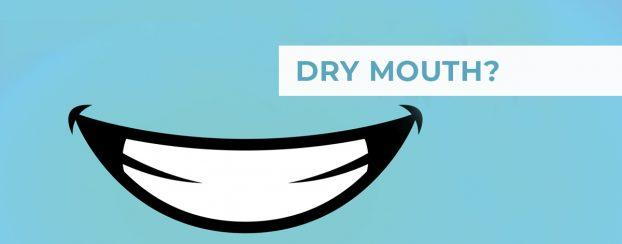
Does your mouth feel dry or pasty? Your tongue and cheeks stick to your teeth, your saliva feels stringy or thick, and it’s hard to speak, swallow or chew? It could be xerostomia, otherwise known as dry mouth. In this blog, we’ll identify the root causes and what you can do to prevent it.
CAUSES
Medications
Certain medications list this as a side-effect. This is especially common in over-the-counter medication and has also been found in drugs used to treat depression, high blood pressure and anxiety. Similarly, it has been linked to some antihistamines, decongestants, muscle relaxants and pain medications.
Smoking and drinking
Smoking cigarettes (tobacco or marijuana) and drinking alcohol can lead to symptoms of dry mouth. This is because the effects of these substances slow down saliva production.
Health conditions
Xerostomia could be a symptom of a pre-existing health condition. If you’ve been diagnosed with diabetes, autoimmune diseases, have suffered a stroke or are currently battling a yeast infection in your mouth, you may experience dry mouth.
Ageing
As we get older, our bodies change and our systems slow down. Scientists have confirmed that people aged 65 or older experience slower saliva production than their younger counterparts. Researchers state that, at this age, saliva production decreases by approximately 40%, leading to more cases of dry mouth in this age group.
TREATMENTS
Dry mouth isn’t the end of the world, but leaving it untreated could cause other health complications namely; increased plaque, tooth decay or gum disease, mouth sores or cracked lips, and many more.
Keep your mouth happy and healthy with these tips:
- Drink lots of water and limit your caffeine and alcohol intake.
- Avoid using mouthwashes that contain alcohol as they are drying. Dentists recommend using mouthwashes that contain xylitol to stimulate salivary flow.
- Quit smoking.
- Chew mints or gum containing xylitol to stimulate your salivary glands.
- Consider seeing an ENT specialist if you notice that you tend to breathe from your mouth rather than your nose.
- Sleep with a humidifier to add moisture to the air.
- Brush your teeth using fluoridated kinds of toothpaste and mouth rinses to prevent tooth decay.
- Use oral lubricants to help improve your mouth’s moisture levels.
- Visit your dentist at least twice a year.
We’d love to help you with that last tip. If you suffer from dry mouth, the Pallium Dental team has got your back. Book your next visit today to see how we can help.
